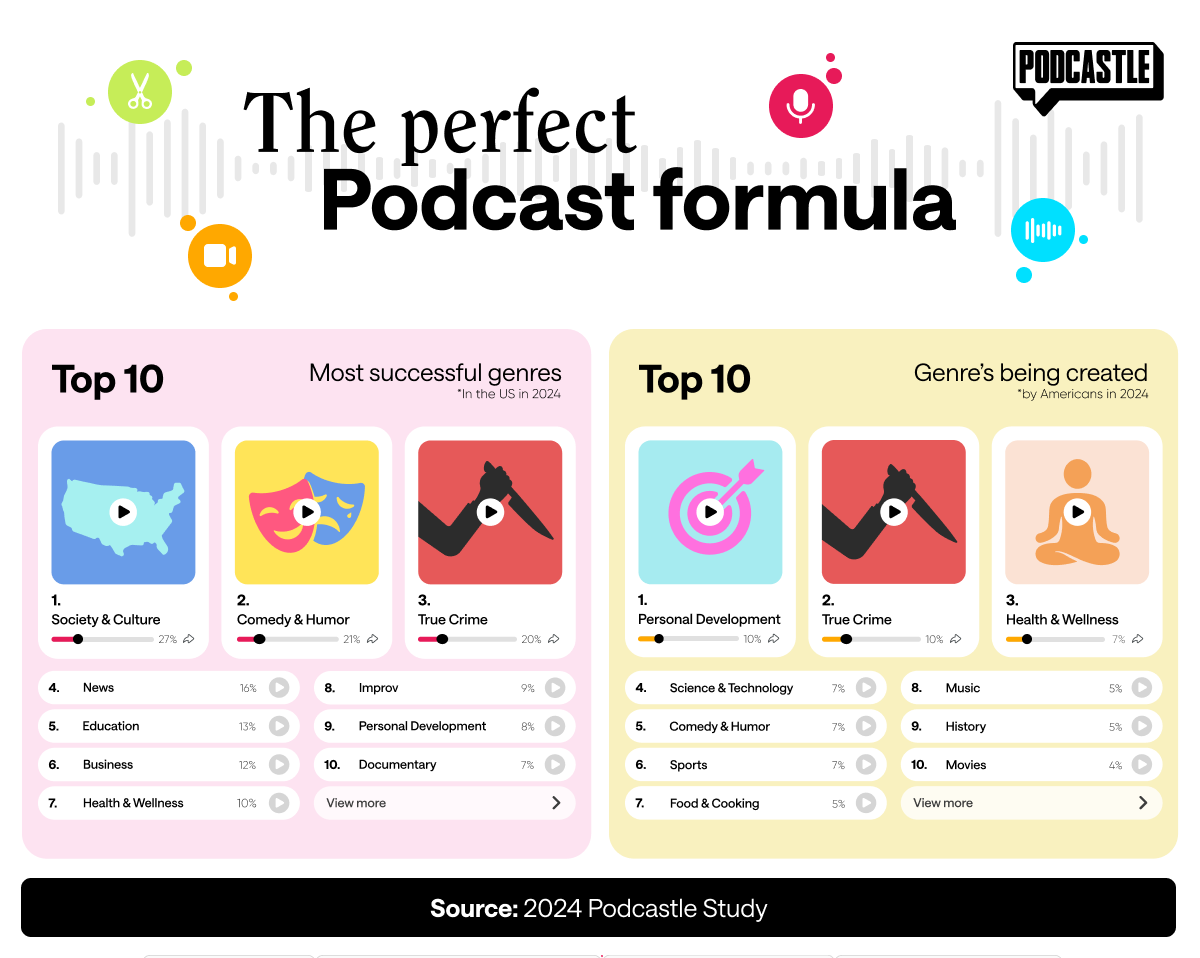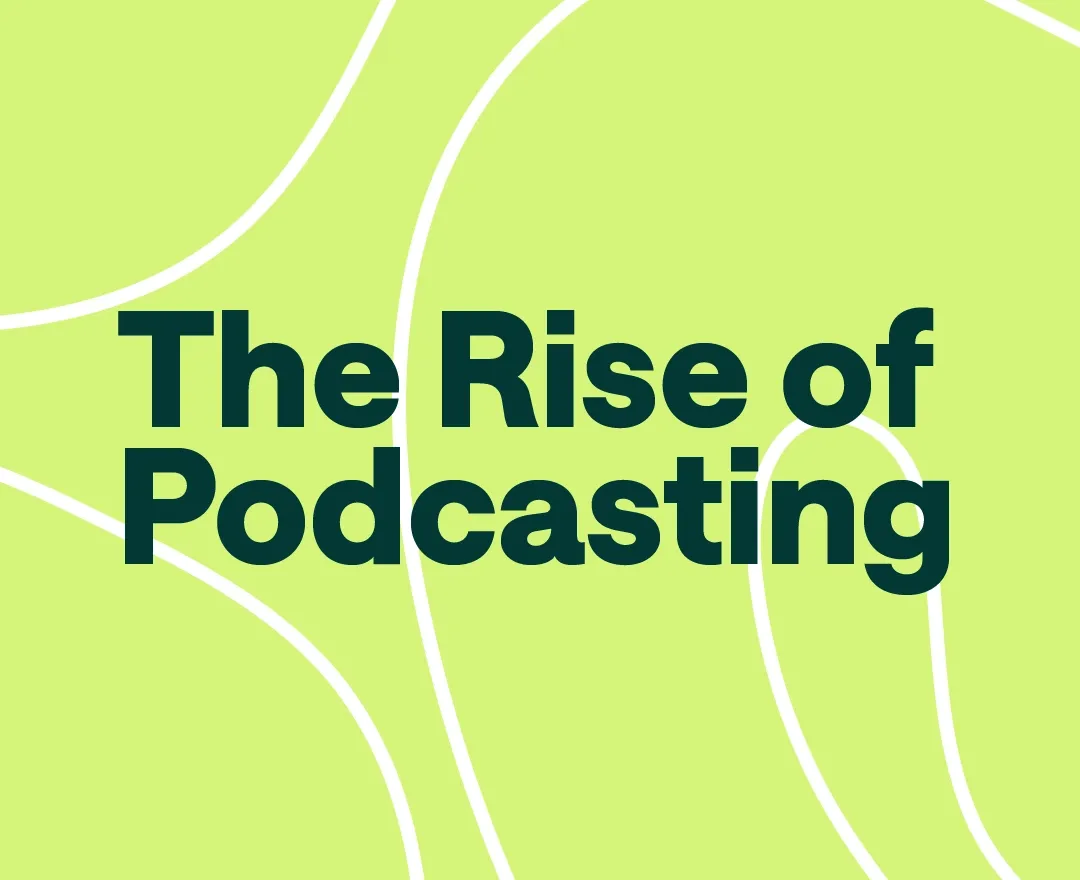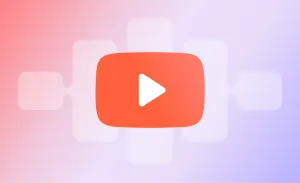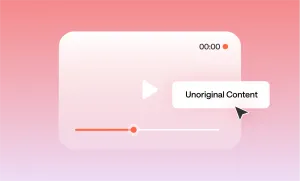The popularity of podcasts has been incredibly resilient over the last several years, navigating the Pandemic boom and return to normality.
Here is why podcasts are still a hit and what you can expect in the upcoming years from them!
Are Podcasts Still Popular?
When everyone was stuck indoors during the Covid-19 pandemic, there was a huge rise in podcast creation. You're stuck inside, why not create a podcast?! After everything re-opened and we were able to meet face-to-face this boom slowed, but the number of new shows still remained higher than pre-Covid levels.
According to podcast producer Kate Taylor, some creators and investors are getting a case of “the jitters”. Finding sponsors and funding for new projects isn't as easy as it used to be.
However, Sean Glynn, the founder of the podcast company Novel, sees things differently. He admits it may be tougher to get new shows off the ground, but the ones already out there? They're doing just fine! Turns out, people still can't get enough of their favorite podcasts.
An exclusive research survey carried out by Podcastle found that:
- 18% of Americans are starting a podcast in 2024
- Since 2019, podcast listeners worldwide have increased by 69% - and now we’re seeing a similar trend in podcast production.
- Now, there are over 3 million active podcasts globally.
And here’s the most interesting part: there's a growing demand for niche content, too. Yep, those quirky little shows about super-specific topics are still a hit. So, while the podcasting world might be going through some changes, it's far from being on life support.
At the end of the day, what keeps listeners coming back for more isn't fancy production or big-name hosts—it's authentic storytelling. So, rest assured, your favorite podcasts aren't going anywhere anytime soon.
What Types of Podcasts are Most Popular?
There are many types of podcasts out there, but some are more popular than others. True crime podcasts, for example, that tell real-life mystery stories are among the most beloved ones as they keep listeners on the edge of their seats. Comedy podcasts provide a good laugh with funny conversations and celebrity interviews, while educational podcasts cover everything from history to personal growth, offering valuable insights and knowledge.

In short, there is something for everyone and if you haven’t found your favorite podcasts yet, you probably haven’t searched for it enough!
But if you’re wondering what are the most popular podcasts in 2024, check out our curated list.
This is what the future of podcasts will look like
The truth is that podcasting has evolved into a far different type of medium than it used to be. With AI technology revolutionizing the way we create content, along with more ways than ever before to share and repurpose across social media, a large part of why podcasting popularity has gone through the roof is due to how it has evolved and continues to evolve.
Let's take a look at some of the major upgrades we've seen in the podcasting world.
Using AI for podcast editing
Artificial Intelligence (AI) is revolutionizing the podcasting game, transforming how we produce and consume content. From generating accurate transcripts to automating editing tasks, AI tools are streamlining workflows and making podcasting more accessible than ever.
Platforms like Podcastle offer powerful AI features that not only save time but also enhance the quality of podcasts. As AI continues to advance, expect to see even more innovations that will reshape the podcasting landscape.
We now repurpose podcast content across all socials
Content repurposing is becoming increasingly important as social media platforms play a larger role in podcast promotion. Podcasters are repurposing their audio content into short-form videos and highlight reels to reach wider audiences on platforms like Instagram and TikTok. AI transcription tools make it easy to convert podcasts into blog posts, further expanding reach and engagement. Embracing content repurposing will be essential for podcasters looking to stay relevant in the ever-changing social media landscape.
The video podcast takeover
Video integration is becoming the new norm in podcasting, with a growing number of listeners preferring to consume podcasts with video content. In fact, 22% of podcasters are now using video to enhance the value of their content, a number that's only been growing over the past couple of decades.
Video podcasts provide opportunities to harness visuals and expand reach on platforms like YouTube. And AI powered platforms like Podcastle have really made it possible for any creator, no matter the skill level, to integrate video into their podcasting production, giving that additional edge to their content.
As video continues to gain traction, expect to see more podcasters embracing this trend to connect with their audiences in new and exciting ways.
Ever heard of a VR podcast?
The future of podcasting will likely include immersive and interactive experiences, leveraging technologies like virtual reality (VR) and interactive tools. Platforms like Spotify are introducing features that allow podcasters to engage with listeners through Q&As and polls, enhancing the listener experience. As these technologies become more accessible, we expect to see podcasts evolve into interactive storytelling experiences that captivate audiences in many new ways.
Podcast branding is where the money's at
Finally, branded podcasts are one of the podcasting trends to watch out for. These podcasts are on the rise, offering companies a powerful marketing tool to connect with audiences and build brand awareness. With the increasing popularity of podcasts, companies are recognizing the value of creating branded content that resonates with their target audience.
As branded podcasts continue to grow, expect to see more companies investing in podcasting as a strategic marketing asset. Additionally, monetization opportunities will expand, offering podcasters new avenues to generate revenue and sustain their shows.
Radio vs Podcasts
Radio still has a lot to offer, and is very popular even among younger audiences. For instance, according to a recent Edison Research report, 37% of Gen Zs (ages 12-24) said they had listened to radio in the past week. This demonstrates that radio remains a relevant medium for this age group.
However, Gen Z's listening habits differ from older generations, since they spend more than a third (35%) of their audio time listening to streaming audio, compared to those age 25 and older.
With that said, let's break down some of the main differences between podcasts and radio, and truly see why have podcasts become so popular.
Listen to podcasts anytime, anywhere
Podcasts provide on-demand access to content, allowing listeners to choose what they want to hear and when they want to hear it. This flexibility means you can listen to podcasts anytime, anywhere, using your smartphone, computer, or other devices.
This is not the case for the radio as it follows a fixed broadcasting schedule, requiring listeners to tune in at specific times to catch their favorite shows. So while radio offers live programming and real-time news updates, podcasts are more suited for those who have busy lifestyles and need control over what you listen to.
The podcast niche appeal
Radio stations typically offer a range of music genres, talk shows, news broadcasts, and advertisements to appeal to a broad audience. However, the content is often curated by station managers, limiting the diversity of topics and perspectives.
Podcasts, on the other hand, are for literally anyone! They cover virtually every subject imaginable, from true crime and comedy to science and self-help. If you have a mic, or even just a laptop and good podcasting software, you can start your podcast for your own niche audience.
As a result, the large variety of niche content produced covers diverse interests and communities, allowing listeners to find shows for their specific tastes and preferences.
Fun podcasts are easy to find
Podcasts offer a more personal and intimate listening experience compared to radio. Many podcasts feature conversational formats, where hosts engage directly with their audience, sharing personal stories, insights, and opinions. This connection creates a sense of community, making listeners feel like they're part of the conversation. In contrast, radio hosts often have limited interaction with their audience, relying on one-way communication through broadcasts and phone-ins.
Podcast reach knows no bounds
Podcasts aren't just limited to your local neighborhood. They're spread around the globe, connecting creators with audiences from every corner of the planet! Thanks to platforms like Spotify and Apple Podcasts, these shows can reach millions of eager ears, no matter where they are or what time it is. It's like hosting a party where everyone's invited, regardless of borders or time zones. This global accessibility isn't just about reaching listeners—it's about building diverse communities of listeners who bond over shared interests and passions.
Create Your Podcast with Podcastle
If you’re wondering how to start a podcast but have no idea how to do so, we got you covered. With Podcastle, creating your show is easy and quick, thanks to its range of powerful AI features. From auto-editing and generating transcripts to crafting show notes and short clips for social media, Podcastle simplifies the entire process, letting you focus on your content. Give it a try today and launch the next best podcast!








